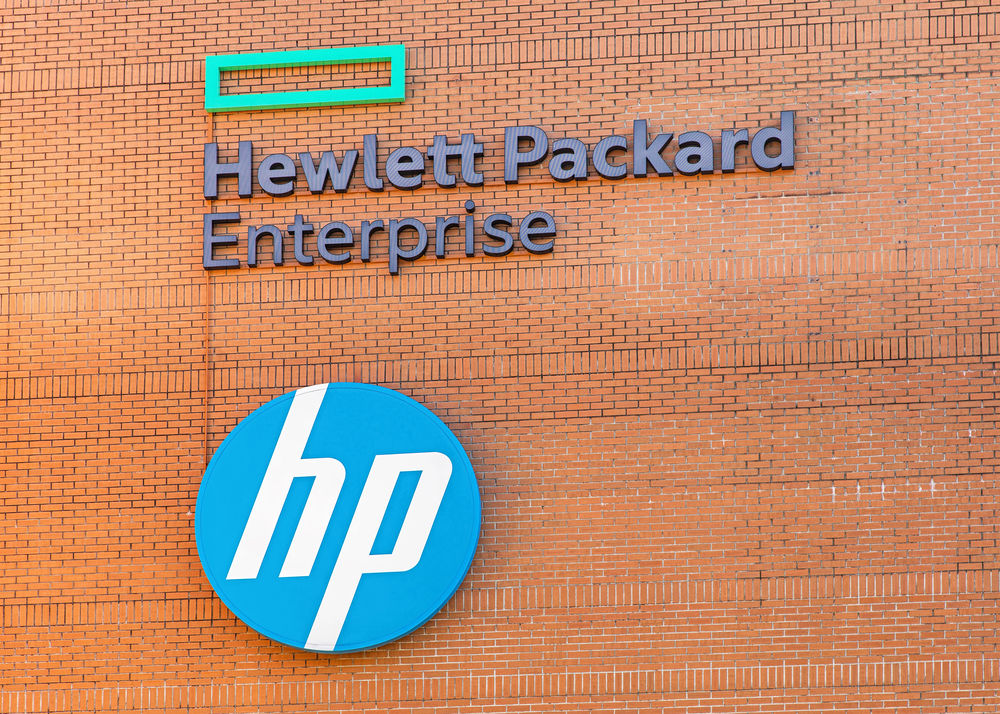HP Inc. (HPQ) and HP Enterprise (HPE) stocks have had mixed returns since the two companies separated in 2015.
HPQ stock has jumped by over 263% while HPE has risen by 159% in the same period. The S&P 500 index has jumped by over 200%.
HP Enterprise woes have continued
HPE is a company that provides diverse solutions to companies from around the world. Its top products are servers, storage solutions, and other products that are essential in the cloud computing and AI industries.
Over the years, the company has focused on organic growth and acquisitions. It acquired Juniper Networks, a leading company in the networking industry for over $14 billion in cash.
It also bought OpsRamp, Morpheus, Zerto, and Determined AI in a bid to reach more customers and diversify its offerings.
The challenge, however, is that HP Enterprise’s business has largely been unchanged for a long time, which explains why the stock has underperformed the market.
Its annual revenue in 2019 stood at over $29.1 billion. After dropping to $20 billion in 2020, its revenue rose to $29.1 billion in the last financial year. This is a sign that the company has not grown at all in this period.
Positively, the company has compensated its slow revenue growth by slashing costs, which explains why its net income has jumped from over $1 billion in 2019 to over $2 billion in the last financial year.
The most recent financial results showed that its revenue rose by 10% in the fiscal third quarter to $7.7 billion while its annualized revenue run rate jumped to $1.7 billion.
However, the financial statement had more red flags that showed that the company was not doing well. First, its gross margins dropped by 420 basis points to 31.6%.
Second, most of its segments are slowing, even as investments in IT rose. According to Gartner, global IT spending will jump by over 7.5% this year to over $5.26 trillion, helped by generative AI. Most of this growth is coming from software, IT services, and data center systems.
Therefore, despite this industry growth, HPE’s intelligence edge revenue fell by 23% while its hybrid cloud fell by 7% to $1.3 billion. The only division that grew was its servers whose revenue rose by 35% to over $4.3 billion.
Technically, HPE stock faces risks as well since it formed a rising wedge chart pattern, a popular bearish sign. Therefore, there is a risk that it will crash to $14.28, its lowest swing in February this year.
HP Inc. faces major challenges
HP Inc., unlike HP Enterprise, is a tech company that focuses on products for consumers and enterprise customers. Its primary solutions are laptops, desktop computers, and printers.
Most of its revenue comes from selling personal computers around the world, where it competes with the likes of Dell, Lenovo, and Apple.
Like HP Enterprise, HP Inc. has faced some major challenges in the past. The most notable issue was the significant demand during the pandemic and the eventual slowdown. Its revenue peaked at $63.4 billion in 2021 and has been slowing down since then. It hit $53.7 billion in the last financial year. Its profit growth has also stalled.
The most recent results revealed that HP’s revenue growth was not all that strong. Revenue rose by 2% to $13.5 billion while its free cash flow came in at $1.3 billion. Its printing segment’s revenue dropped by 2.8% to $4.1 billion while personal systems jumped by 4.9% to $9.3 billion.
HP’s challenge is that PC sales growth is still under pressure and recovering gradually. In a recent note, Gartner said that global PC shipments rose for three consecutive quarters, with Lenovo being the best seller. It was followed by HP, Dell, Apple, and Acer. The researchers expect the growth to continue albeit at a slower pace.
Which is a better buy?
Therefore, the question is on the better company to buy between HP Enterprise and HP Inc. The two are well-known brands with a solid customer base and are trading at a big bargain compared to the broader market.
For example, HP Inc. has a forward price-to-earnings ratio of 13.18 while the industry median is 28.2. It also trades at a forward EV to EBITDA ratio of 8, lower than the industry’s 14.
Similarly, HP Enterprise has a forward P/E ratio of 11 and a forward EV to EBITDA multiple of 6.11.
These companies are cheap because their businesses are no longer growing as they did in the past. Also, they are both low-margin companies with a net profit margin of less than 5%.Therefore, while I would avoid both stocks, I think that HP Inc. is a better one because of its large market share in the computing and printing industry. This is in line with what Quint Tatro recommended in 2023.
The post HP (HPQ) vs HP Enterprise (HPE): which is a better stock to buy? appeared first on Invezz
